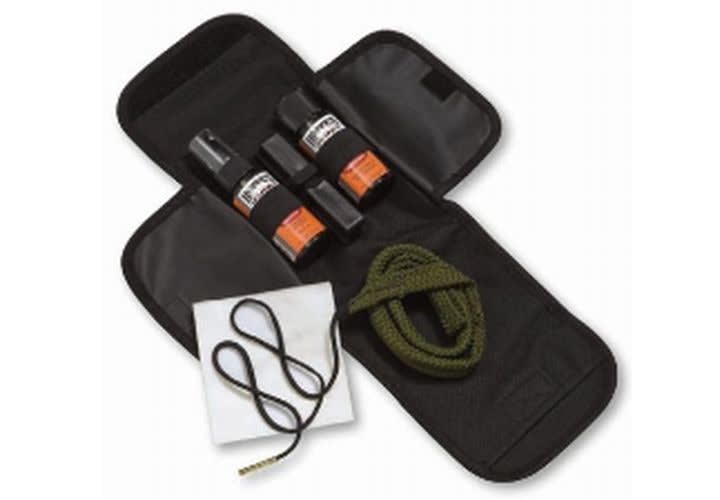I suspect that far too many law enforcement officers think that once lubrication is applied to a firearm it will remain on that firearm until that handgun, rifle, or shotgun is thoroughly cleaned again and re-lubricated. They are wrong.
Lubrication is needed to make moving parts operate with limited amounts of friction. Even when a firearm is dirty from being used it can still function properly if it is properly lubricated. It is also imperative for you to realize that lubrication can be completely removed or diluted to a significant degree when a firearm is kept in a safe or in a locker at work.
Lubrication can also be diluted or removed if your firearms are exposed to heavy rain, snow storms, blizzard conditions, incredibly dry heat in a desert environment, tremendous humidity in a more tropical environment, and from excessive use. The passing of time will also eventually cause lubrication to evaporate from the internal mechanism of any firearm.
When I was on duty with U.S. Customs I tended to apply more lubrication to my firearms. You see, I was once a police officer and a federal agent in New York City. Then I transferred from to Miami to serve with Customs on the frontlines of our nation's so called Drug War. The weather in South Florida alone was enough to make me considerably more diligent in cleaning and lubricating my issued and personally owned firearms on a weekly or at least a monthly basis.
In the field conditions were even more severe. When I served on a Customs vessel that caused me to get covered in salt spray or when I flew in a low flying Customs helicopter that caused the rotor wash to stir up a salt spray, I made sure to clean and lubricate every firearm I carried.
To give you an idea of what I am talking about allow me to pass on a few worthwhile tidbits of information that justify the need to properly maintain your firearms and to always carry a cleaning kit with a bottle of lubrication.
I recently field tested a select fire FN SCAR Heavy MK17 that is the new issued Air Crew Rifle for the U.S. Customs & Border Protection's Office of Air & Marine. It experienced one stoppage one week after it was cleaned and "lightly" lubricated. But after I applied a few drops of oil to the operating bolt, this rifle fired several hundred rounds of 7.62 NATO caliber ammunition at a local gun range in the Arizona desert without incident. Since then the operator of this rifle e-mailed me to let me know that he now applies a bit more lubrication to his issued select-fire FN SCAR Heavy MK17 and that his rifle is functioning without any additional problems.
My advice to you is to carry a small compact cleaning kit with a small 0.5 ounce or 1 ounce bottle of high-quality lubricating gun oil, a tooth brush, a small rag, a few Q-tips, some Hoppe's BoreSnakes in various appropriate calibers, and a collapsible steel cleaning rod with the necessary cleaning attachments that can be used to clean and remove obstructions from a rifle or pistol barrel.
Remember, you can't predict the type of calls or emergency situations that you may be called to in the future. So it pays to be completely self-sufficient. Even motor oil from the dipstick of a patrol vehicle engine is better than nothing if you have to lubricate a firearm in the field in extreme conditions.












